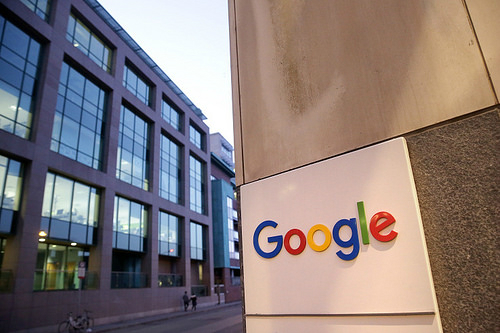Attacking H-1b Visas Spurs More of the Best to Work Overseas
 Trump’s recent attacks on the H-1b visa system reflects a truly short-sighted view (at best) and represents an additional backwards step for this country as the premier country for innovation and technology. Like with any government program, it can be improved, but the idea that we are letting in too many foreign national specialized employees is really baseless, and when you look at the numbers and facts, the reality is that the number of H-1b visas needs to be increased.
Trump’s recent attacks on the H-1b visa system reflects a truly short-sighted view (at best) and represents an additional backwards step for this country as the premier country for innovation and technology. Like with any government program, it can be improved, but the idea that we are letting in too many foreign national specialized employees is really baseless, and when you look at the numbers and facts, the reality is that the number of H-1b visas needs to be increased.
Here are the three biggest reasons why:
1) The H-1b Visa Limit Hasn’t Been Updated in Nearly 30 Years
The government set the H-1b visa limit at 85,000 per year in 1990. This means we have not increased the number of H-1b visas since the internet technology revolution that started in the 1990s. However, of this 85,000, the majority go to tech positions. (Congress did briefly increase the number of H-1b visas to 195,000 over a three period in early 2000 (during the tech bubble), but this increase expired in 2004, returning the allocation to the original 85,000.)
2) Without an H-1b, Employers Must Pursue More Difficult Paths
The H-1b visa is also the most straightforward and common visa for a U.S. company to hire a talented foreign national. It is the one visa we grant to U.S. employers where they can simply hire who they want, even if the person is a foreign national. If they cannot obtain a H-1b visa for an employee, an individual can only be hired if they meet the more complicated requirements of other visas, like the L-1 visa (must first work for an affiliated company abroad for 1 year before being transferred to the U.S. company), or an O-1 visa (a person of extraordinary ability).
Just consider that 85,000 visas represent .026 percent (or .00026) of the U.S. population. We have let close to that number of refugees into the U.S. annually, and we let in 50,000 people each year through our diversity lottery (a random world-wide green card lottery that encourages immigration from underrepresented nationalities).
3) To Remain the Tech Giant, the U.S. Must Continue to Source Talent Globally
The U.S. is the leader in technology companies, an industry that continues to experience a massive shortage of technology workers (computer programmers, engineers, etc.). Google, Facebook, Microsoft and practically every other mid to large technology company has been lobbying for an increase in H-1b numbers. These are the largest companies in the world that employ hundreds of thousands of U.S. workers, but they still, understandably, need a little help from talented foreign nationals.
Low Limit, Low Possibility
All of the above reasons suggest that the current H-1b cap of 85,000 is disturbingly low.
As Trump continues to attack our immigration system, and really immigrants in general, we are seeing more and more talented individuals and companies chose to locate overseas. While Trump and a few states have coerced and subsidized a few companies to keep a plant or two in the U.S, by creating an increasingly hostile immigration environment, we are losing increasingly more economic development as more companies and foreign nationals chose other countries to start and grow companies. If this trend continues, it could have a massive negative effect on the stature and growth of this country in the near future.
Photo Credit: marvelousapps Flickr via Compfight cc
